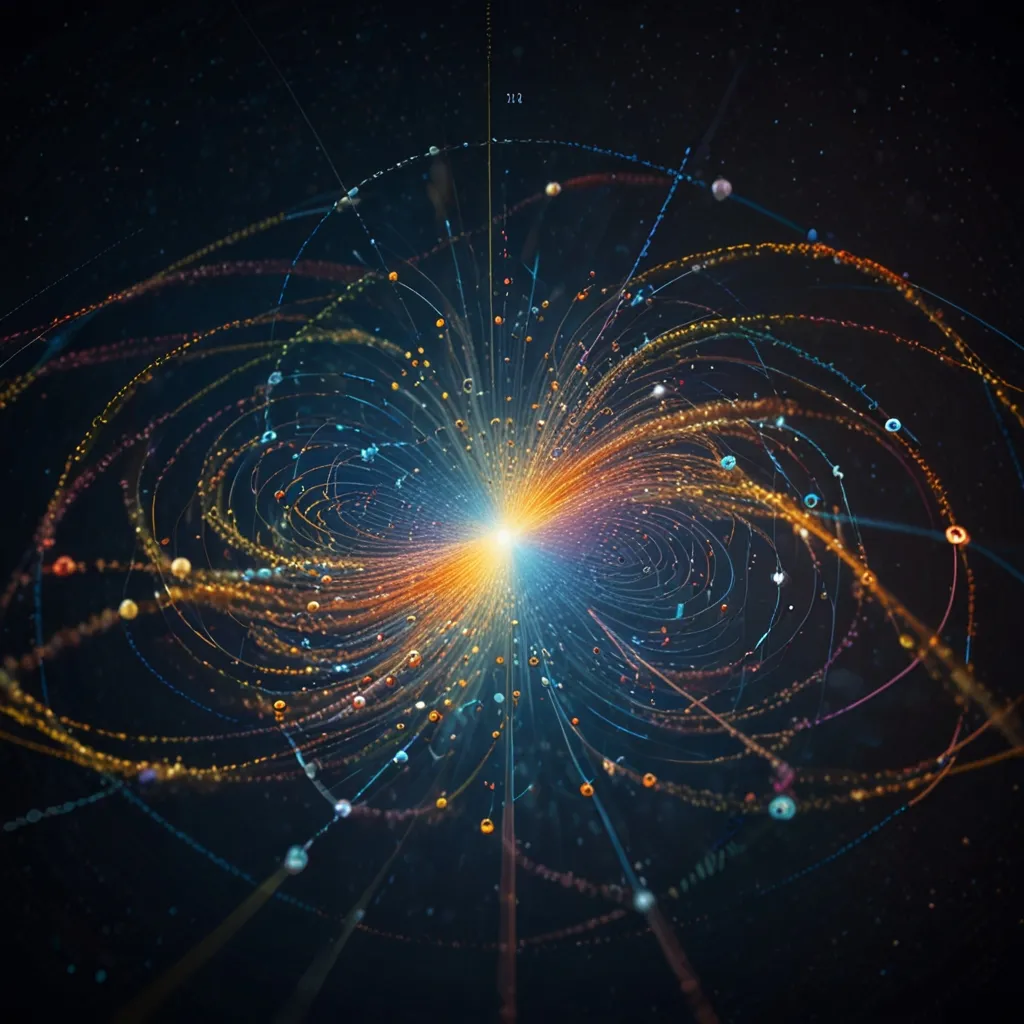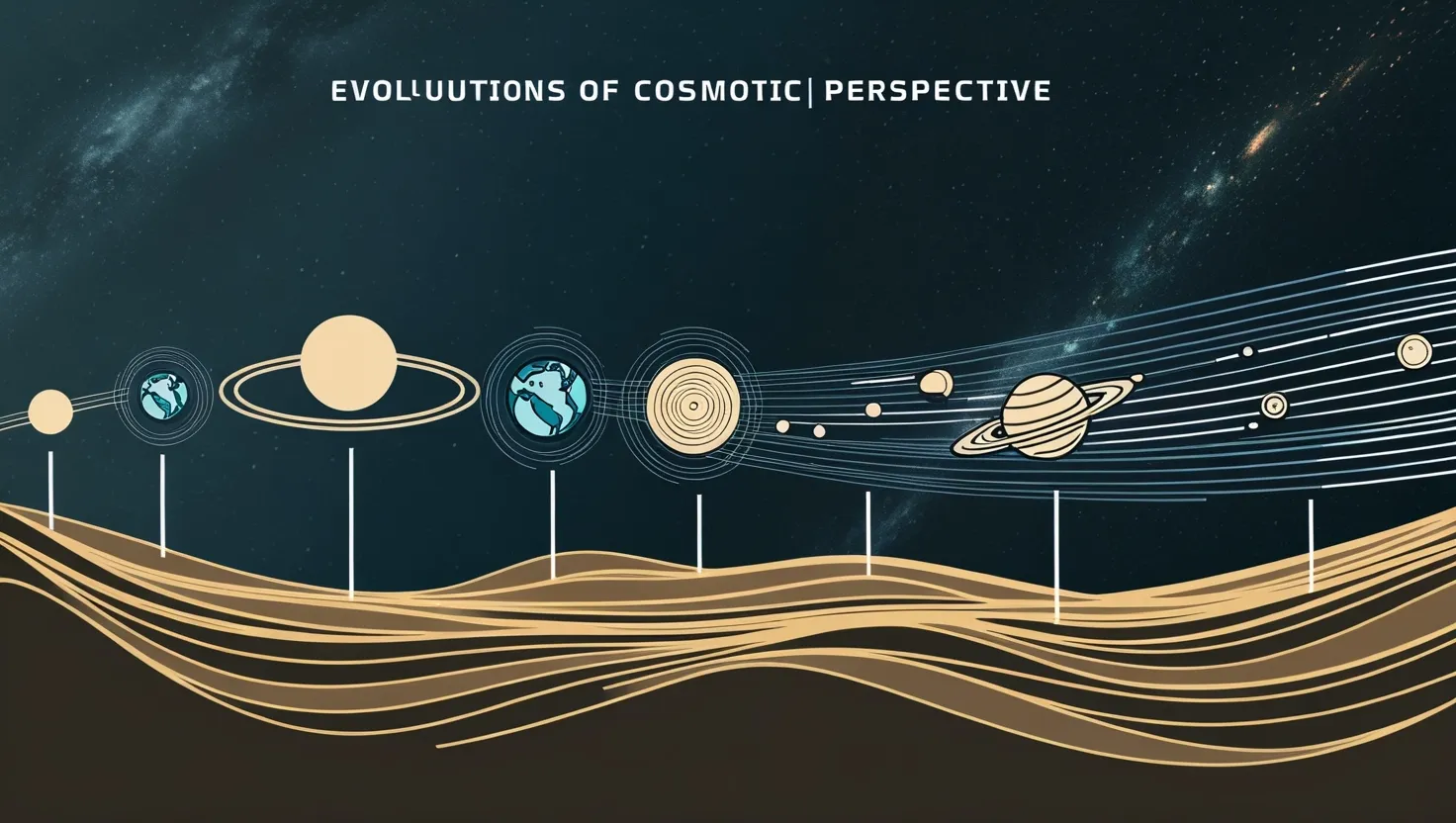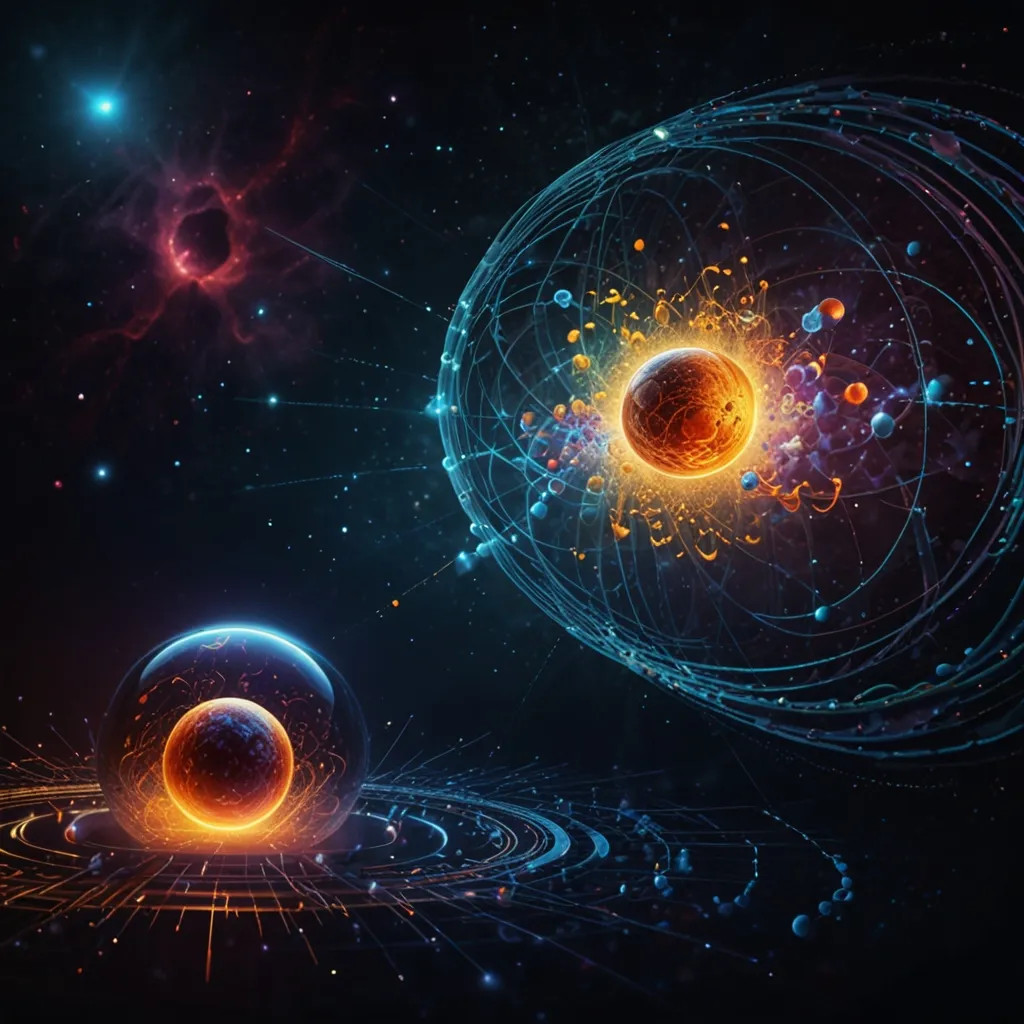The Higgs field is essential in the world of particle physics. When particles interact with this field, they gain energy. Because energy and mass are equivalent, this interaction results in what we perceive as mass.
Imagine a particle interacting with the Higgs field. This interaction gives the particle what we call “rest mass.” Take the electron, for example. Without the Higgs field, it would be massless. But because the electron consistently interacts with a Higgs field that exists throughout the universe, it gains mass. This constant interaction slows the electron down.
If you apply a force to an electron, the Higgs field pushes back, making it harder for the electron to accelerate. This resistance is what we know as inertial mass. Thus, the electron behaves like a particle with a well-defined rest mass of 0.511 MeV in the vacuum.
Understanding the Higgs field and its interaction with particles helps explain why particles have mass and behave the way they do. This fundamental concept is a cornerstone of modern physics.






